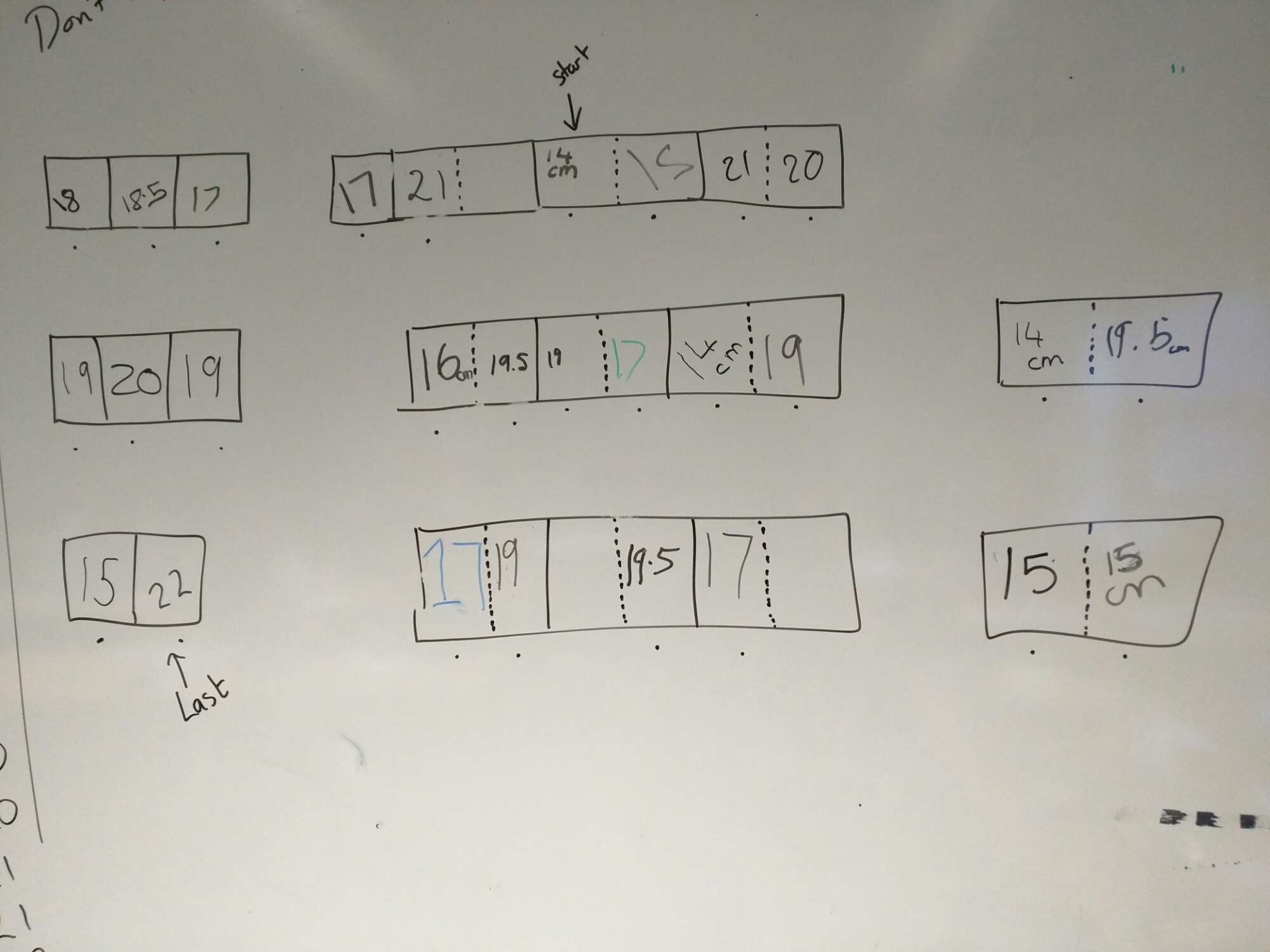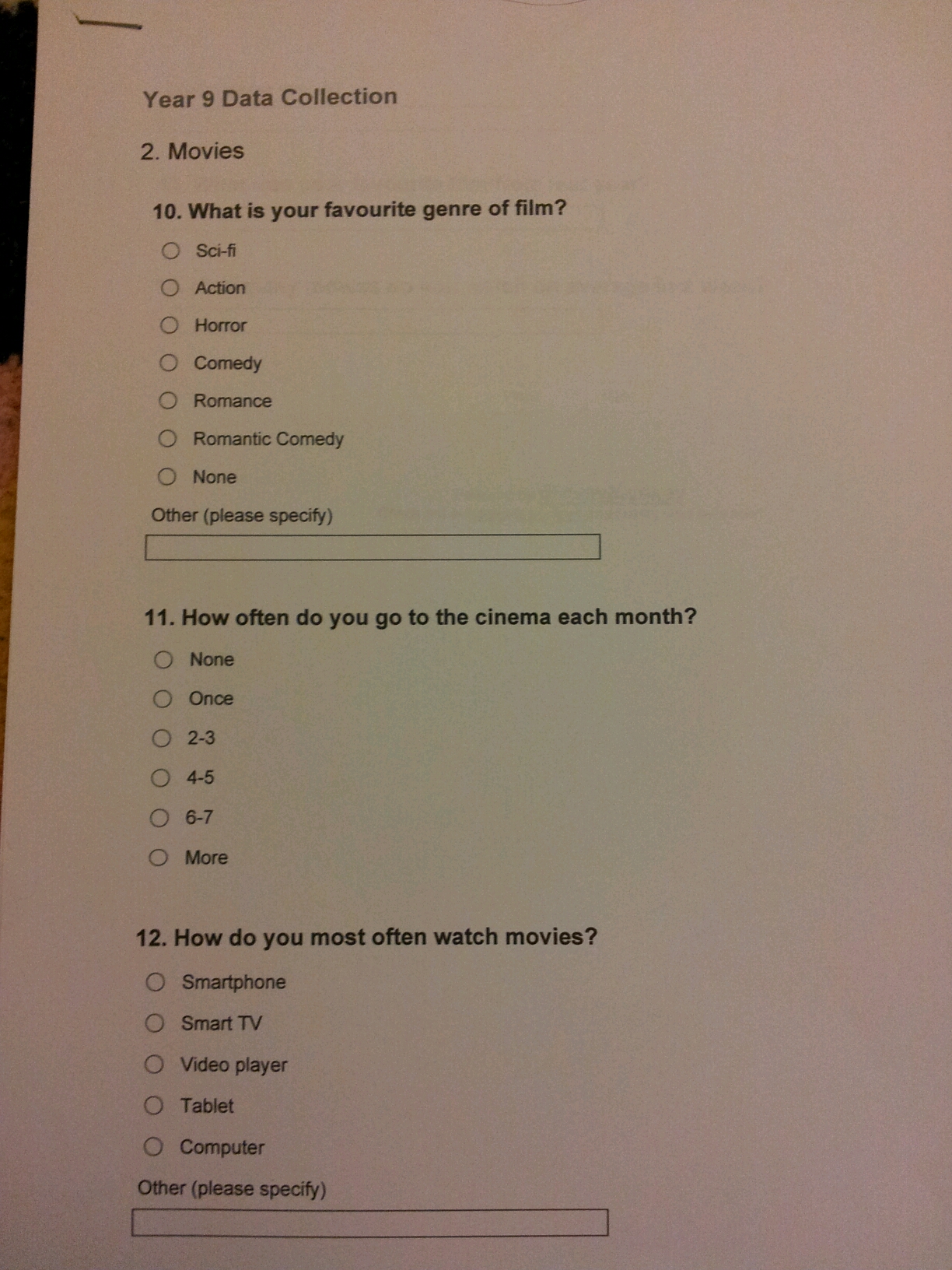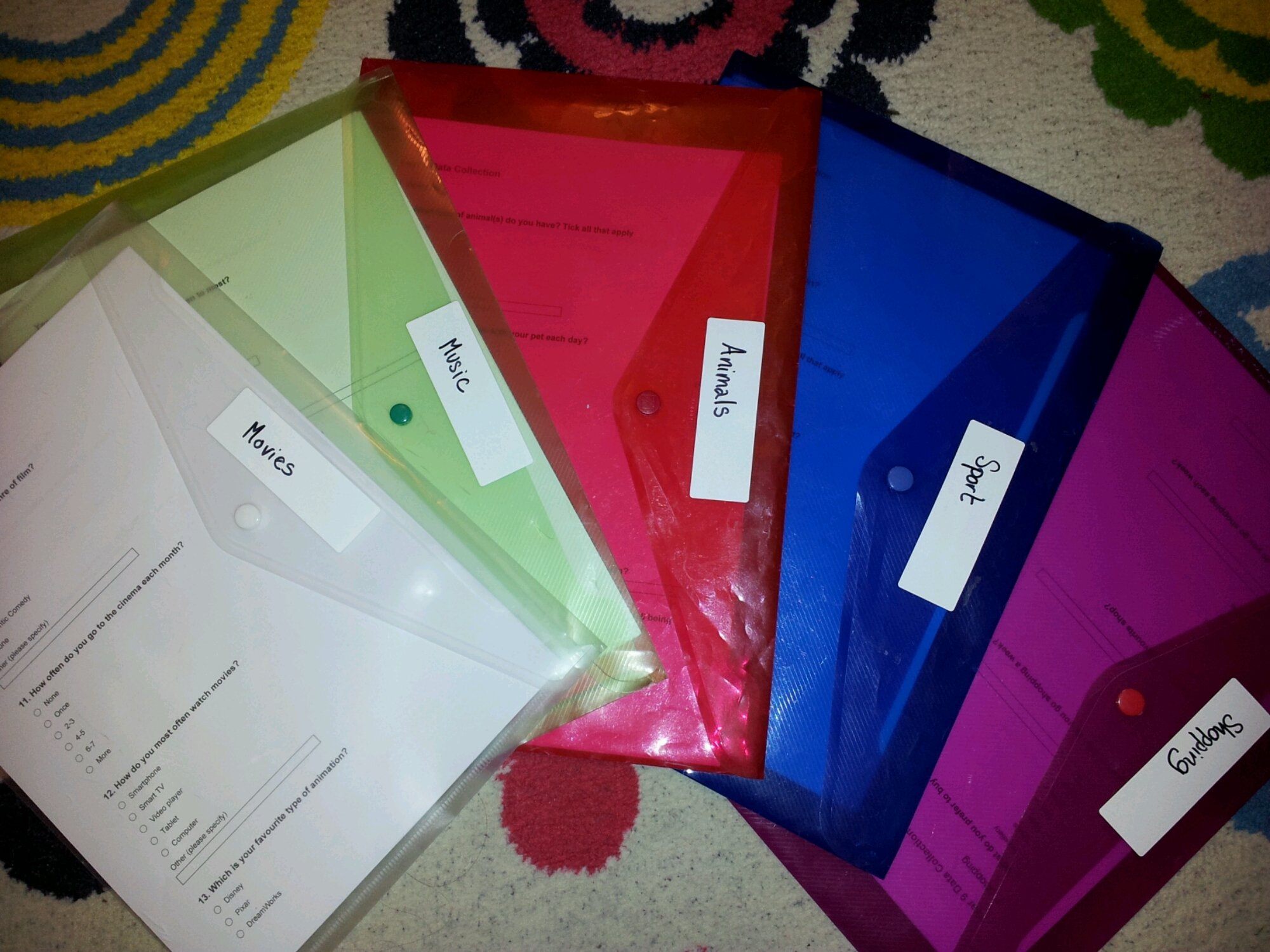We’ve all been there. When you do a data topic, it’s nice to use class data – it is easier to discuss/compare and generates irregularities. The tricky bit is collecting it in!
Write it in your book – how do you get everyone else’s?
Write it on paper? – someone has to process the paper
Type it in a classlist on a computer? – long queue for computer, computer out of action if teacher needs to use it
Use a voting system (Qwizdom/Socrative etc)? – good, but subject to user error
Go around the class and read it out? – someone won’t be listening!
Write it on the board? – someone won’t do it/ will put a daft number/ rub out someone else’s result
This was such a nice idea – real life data processed and interpreted by students. We need a quick, accurate data collection solution which ensures everyone contributes. All the ideas above have merit, but how to combine them?
Inspiration struck when I was trying to do this with a bubbly Y10 class – how could I tell if they all contributed to the data? How could I keep track of deliberately daft answers? How can you stop the general milling around and gossiping at the board as they descend on it?
The desks!
While your class is measuring, sketch out your desk plan on the board. Students write their result in their desk space.
(You can see below that we collected hand span data. The start and finish indicated the smallest and largest widths for listing the numbers in order.)
You can keep track of who is finished, without having to stand at the front checking who has contributed. Once the desks are full, you are done. The data collection is structured and you have time to set up the next task.
No fancy technology or processes required!





